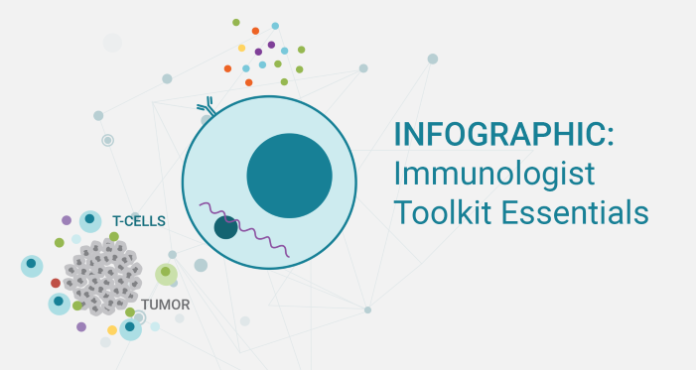
Immunologists are scientists who specialize in researching the immune system and the treatment of individuals with immunological diseases. Clinical immunologists diagnose and treat illnesses such as severe infections, HIV, COVID-19 and multiple sclerosis.
Clinical and laboratory work are also part of their job. The majority of their clinical work is done in outpatient settings, while they admit patients to the hospital occasionally.
According to the 2014-2015 census, there were 68 immunology consultants in 2014.
Multidisciplinary work is essential in any medical specialty. Immunology specialists collaborate with specialized nurses, physician assistants, general practitioners, pathologists, pediatricians, and infectious disease specialists.
Clinical immunologists must be detail-oriented and have a rational mind. Communication, collaboration, and leadership abilities are essential in the workplace. Clinical immunology is a challenging yet exciting field since immunological diseases (from allergies to severe auto-immune diseases such as Lupus) can have significant consequences for patients’ lives.
How to Become an Immunology Doctor:
In the United States, after receiving an undergraduate bachelor’s degree and completing medical school, physicians interested in the field of Allergy/Immunology typically complete a residency in internal medicine before specializing in Clinical Immunology. CMT (Core Medical Training), ACCS (Acute Care Common Stem), or pediatrics training are all options for core training. While all of these paths include immunology specialized training, it should be noted that the CMT route is just two years long, while the ACCS/pediatrics level one course is three years long.
After finishing core training, students in Great Britain take the Royal College of Pediatrics and Child Health (MRPCH) test and begin specialized immunology training. Candidates will acquire a Certificate of Completion of Training (CCT) after five years of specialty training, allowing them to apply for consultant roles.
Dr. Paul Ernest Love and Research at NIH:
Dr. Paul Ernest Love is a clinical pathologist and immunologist from the United States. Dr. Love has over 31 years of experience as a Scientist and is credited with significant research achievements in fundamental science and medicine. Dr. Love works at the National Institutes of Health (NIH), a government institution part of the US Department of Health and Human Services. He is still a key player at the NIH and is well-known in immunology. Dr. Love now serves as the Section Head of Hematopoiesis and Lymphocyte Biology at the Eunice Kennedy Shriver National Institute of Child Health and Human Development (NICHD). His study primarily focuses on T cell antigen receptor (TCR) signaling and its role in T cell development.
Throughout his professional career, Love’s study has made significant contributions to understanding the mammalian immune system. Love’s group has been involved in partnerships that resulted in the creation of a mouse model for human SCID-X1 and animals lacking in or expressing mutant variants of the essential T cell signaling adaptor LAT or the chemokine receptor CCR9. Members of the Love-lab have also discovered vital functions for the proteins CD5, CD69, Txk, Themis, Themis2, and Fbxl12 in T cell development using genetic screening methodologies and gene targeting studies. Another study from the Love lab found that multiprotein transcriptional complexes comprising the proteins Ldb1 and Lmo2 play an essential role in hematopoietic stem cell maintenance/self-renewal, erythropoiesis, and the genesis of T cell acute lymphoblastic leukemia.
Conclusion:
Allergists/immunologists can also educate patients about their illness and offer helpful lifestyle and nutritional advice to control their symptoms.
People who are currently being treated for an allergic/immunological problem should frequently see their allergist/immunologist.
An allergist/immunologist may do further tests to examine the person’s condition at a follow-up session. They will also inquire about any new or worsening symptoms or adverse effects of the medicine.








